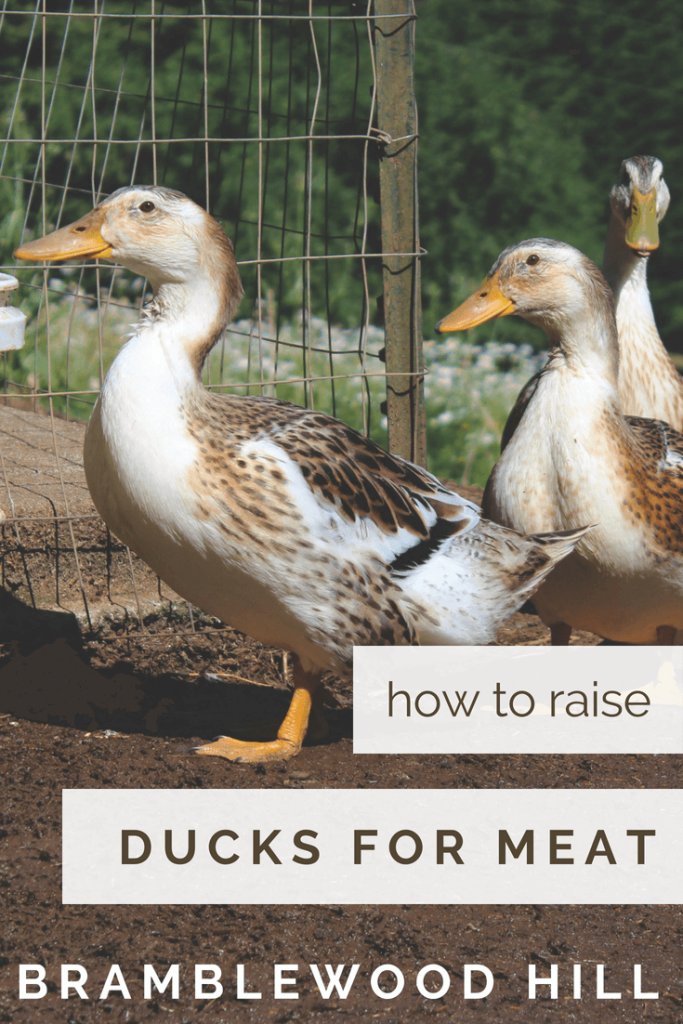
Let’s break it down together. Raising ducks for eggs can be a rewarding experience if you love fresh produce in the morning. On the other hand, raising ducks for meat can provide hearty meals with a unique taste. Here’s the thing: both paths have their perks and challenges. So, grab a cup of coffee, and let’s explore what to expect when raising ducks for eggs versus meat.
Understanding Duck Breeds
Before diving into the details of eggs or meat, it’s vital to know that not all ducks are created equal. Just like how not every dog breed is suited for the same task, different duck breeds are specialized for specific purposes. Some are fantastic for egg-laying, while others are bred primarily for their meat.
For eggs, consider breeds like the Pekins or Khaki Campbells. They can produce a good number of eggs, often outpacing chickens in production. On the meat side, the Pekin duck is a popular choice. These birds grow large and have a rich flavor, making them a favorite for many farmers. When selecting your ducks, think about your main goal. Are you interested in a consistent supply of eggs, or are you looking for a robust meat source? Understanding your breed options is the first step to success.
Egg Production: What to Expect
Raising ducks for eggs can be a joyful experience. Female ducks, often called ducks or hens, can start laying as early as five to six months old. Depending on the breed, they can produce anywhere from 150 to 300 eggs per year. That’s a lot of breakfast!
The eggs themselves have thicker shells and a richer flavor compared to chicken eggs. Many people find duck eggs more desirable for baking due to their higher fat content, which can yield fluffier cakes and creamier custards. If you’re planning to sell or share, be prepared for compliments when folks taste the difference!
But keep in mind, ducks need the right environment to thrive. They prefer a clean, dry area with plenty of nesting spots. You’ll also want to ensure they’re getting a balanced diet that includes access to fresh water, which is essential for their health and egg production.
Meat Production: What to Expect
When raising ducks for meat, you’re looking at a whole different ballgame. Most farmers select breeds that are specifically raised for meat, like the Pekin or Muscovy ducks. These breeds can reach market weight in about 7 to 8 weeks, making them a relatively fast and rewarding option.
The meat from ducks is known for its rich flavor and juicy texture—something that sets it apart from chicken. If you’ve ever had a good roast duck, you know what I mean! However, be prepared for a bit of care. Ducks raised for meat require a balanced diet and consistent monitoring of their health to ensure optimal growth.
Additionally, the setup for meat ducks may differ. They need ample space to roam to get the exercise required for muscle development, and they tend to be messier than egg-laying ducks. So, you’ll want to consider your living space and cleaning routine before diving into meat production.
Cost Considerations for Ducks
Raising ducks, whether for eggs or meat, does involve some costs. When you factor in feed, housing, bedding, and vet bills, you might wonder if the effort is worth it.
– Start-Up Costs: Setting up a safe and comfortable habitat is crucial. Duck houses, fencing, and water supplies can add up quickly. Depending on your setup, expect to spend around $200 to $500 initially.
– Feeding: Ducks have specific nutritional needs. While they can forage, you’ll still want quality feed. On average, you might spend around $15 to $30 per month on feed, but this can vary with flock size and breed.
– Health Care: Regular check-ups and vaccinations (if needed) should also be budgeted for. Ensure you set aside some funds for unexpected health issues too.
When comparing the costs of raising ducks for eggs versus meat, eggs might have a lower monthly feed bill since layers can often supplement their diet with foraging. Meat ducks, on the other hand, will need more energy-dense feed to grow quickly.
Space Requirements: Ducks Need Room to Roam
One crucial aspect of raising ducks, whether for eggs or meat, is space. Ducks are active creatures, and they need room to stretch their legs, swim, and explore.
A good rule of thumb is to provide at least 4 square feet of space per duck inside the coop and a minimum of 10 square feet in their outdoor run. If you’re raising meat ducks, they might need even more space, so they can develop their muscles and stay healthy.
In addition, ducks love water! Having a small pond or kiddie pool is great for their enjoyment and health. Just remember, with ducks, the mess is part of the package. Regular cleaning will help keep their space comfortable.
Common Challenges in Raising Ducks
With any farming venture, challenges are bound to pop up. When raising ducks for eggs or meat, you might find yourself facing a few issues that require attention and solutions.
– Health Issues: Ducks can be prone to certain diseases, so keep an eye on their behavior. If they’re lethargic or not eating, it’s time for a vet visit.
– Predators: Ducks can be an easy target for predators like raccoons and foxes. Ensuring a strong and secure enclosure can help protect them.
– Water Needs: Ducks love water, but standing water can attract pests and cause health issues if not managed properly. Having clean, fresh water available at all times is key.
It’s essential to stay informed and ready to address these challenges as they arise. With a bit of knowledge and preparation, you can handle most ducks’ dilemmas with ease.
Deciding whether to raise ducks for eggs or meat ultimately comes down to your personal preferences and goals. Both options have their advantages and offer unique experiences. If you love the idea of fresh eggs and the joy of watching ducks in action, egg-laying ducks may be the way to go. However, if you’re looking for a source of delicious, high-quality meat, consider raising ducks for that purpose.
No matter which route you choose, raising ducks can be a fun and fulfilling venture. They’re quirky creatures that bring life to your backyard while providing you with food. Just remember, whether you’re going for eggs or meat, patience and care will be your best friends. Happy duck-raising!

